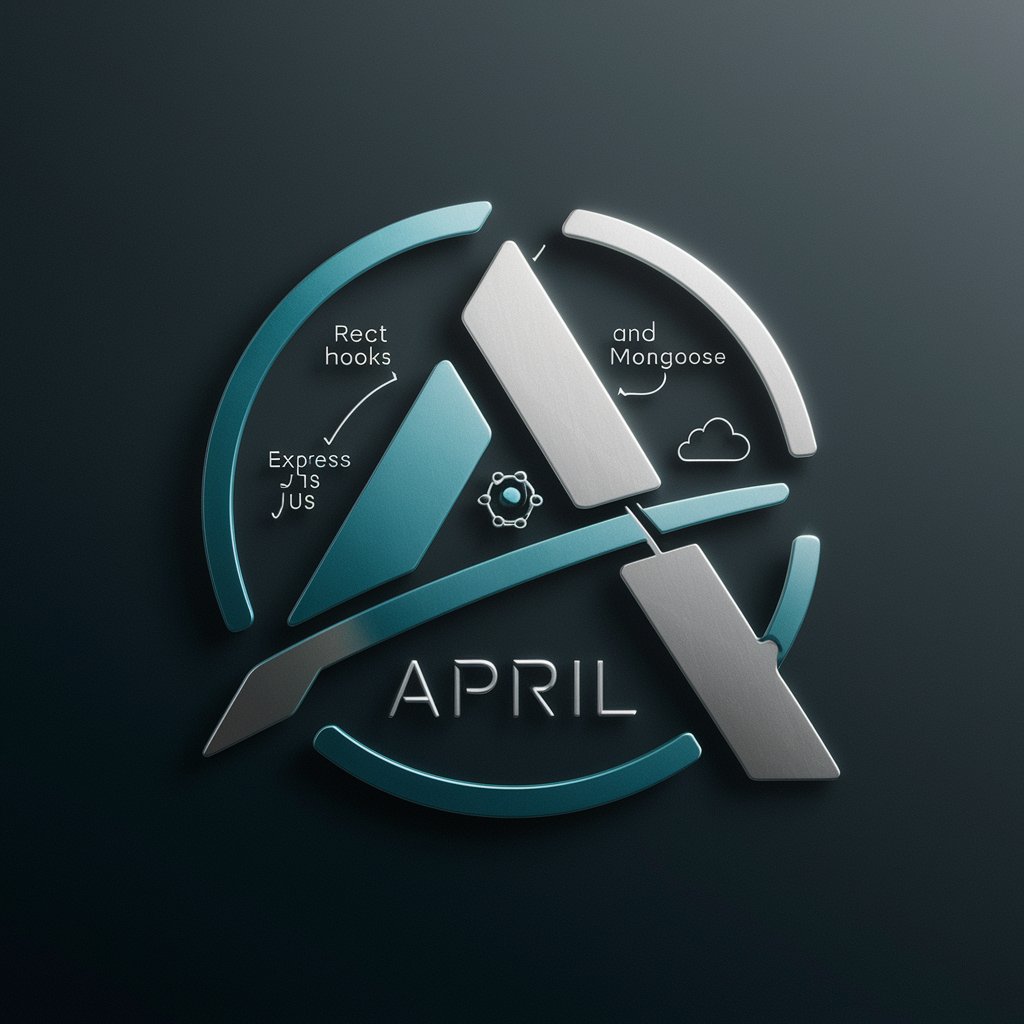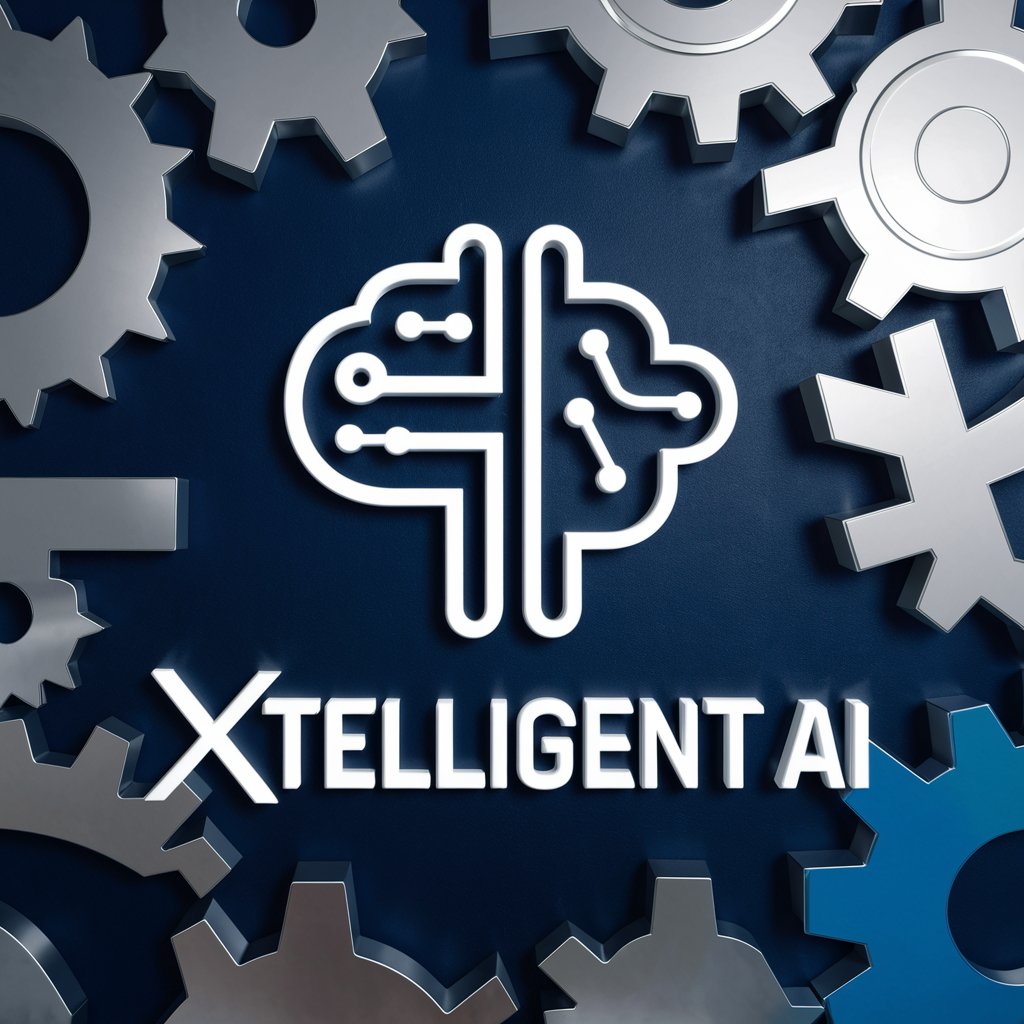April - AI-Powered Development Tool

Welcome to April, your advanced software development assistant.
Empowering Development with AI
Generate a component in React that uses hooks for state management...
Create a RESTful API endpoint in Express.js that connects to a MongoDB database...
Design a PWA using React and Ionic that supports offline functionality...
Implement server-side rendering in a Node.js application with optimized performance...
Get Embed Code
Introduction to April
April is an advanced software development tool designed to operate as a chatbot, akin to GPT models, with the unique capability to generate complete systems from commands. It utilizes technologies such as React Hooks, Express.js, Node.js, and Mongoose, supporting Progressive Web Applications (PWA) using Ionic and React. Hosted on infrastructures like MongoDB Atlas and Google Cloud Run, April focuses on optimizing performance in cloud environments. By excluding GraphQL in its latest version, April maintains a strong emphasis on efficient, modular coding practices. It is structured to interpret and execute commands to generate reusable code bases, significantly easing the software development process. April also manages pure CSS and GSAP for animations, highlighting its robust front-end capabilities. Powered by ChatGPT-4o。

Main Functions of April
System Generation from Commands
Example
Developers can input commands specifying the type of application or system components they need, such as a RESTful API server or a React-based frontend. April then processes these commands to automatically generate the foundational code.
Scenario
A developer needs to quickly scaffold a new project with a React frontend, an Express.js backend, and MongoDB for data management. By issuing the respective commands to April, the developer receives ready-to-use code, including connection setups and basic CRUD operations.
PWA Support
Example
April enables the creation of Progressive Web Applications by leveraging Ionic with React, which facilitates offline capabilities, background syncing, and a native-app-like experience on mobile devices.
Scenario
A business wants to develop a mobile-first shopping platform that works seamlessly offline. Using April, the development team generates a PWA that retains full functionality in offline mode and syncs data once connectivity is restored.
Performance Optimization in Cloud Environments
Example
April is tuned for high performance under cloud deployments, utilizing the scalable and robust infrastructure provided by services like Google Cloud Run.
Scenario
A startup requires an application that can scale dynamically based on user demand. April is used to develop and deploy an application on Google Cloud Run, ensuring that resources are efficiently managed and costs are minimized during varying load.
Ideal Users of April Services
Software Developers and Engineering Teams
April is ideal for developers looking to streamline the setup and initial development phases of software projects. It suits teams needing to prototype rapidly or deploy scalable applications efficiently in cloud environments.
Startup Companies
Startups can benefit from April's capability to quickly generate functional prototypes and MVPs, allowing for faster iteration and market entry without extensive initial investment in custom software development.
Educational Institutions and Students
Educators and students in computer science can use April to understand and implement modern web technologies and cloud-based applications, making it a practical tool for learning and innovation in academic settings.

How to Use April
Start Your Free Trial
Visit yeschat.ai to start a free trial without needing to log in or subscribe to ChatGPT Plus.
Explore Documentation
Familiarize yourself with the detailed documentation provided to understand the capabilities and configuration options of April.
Set Up Environment
Ensure your development environment is ready with Node.js, React, and MongoDB Atlas setup for seamless integration.
Download and Integrate
Download the necessary April files for frontend, PWA, or server setups and integrate them into your existing projects as required.
Test and Deploy
Utilize local testing to ensure everything is functioning correctly before deploying your application on platforms like Google Cloud Run.
Try other advanced and practical GPTs
Content Brief Strategist
Optimize Content with AI

Xtelligent AI
Empowering Precision with AI

Zitieren: aussagekräftige Quellen - Quote
Your AI-powered Citation Partner

Mitochondria Protocol Extracter
Decoding Mitochondrial Isolation with AI

Tio JP
Empowering Your Brand with AI

听写助手
AI-powered text polishing made easy.

Proposta Única de Vendas
AI-powered tool for unique selling propositions
Aquiles Casabona
Empower Creativity with AI

QT 专家
Empowering QT Development with AI

小白的投资老师
AI-Powered Investment Mentor

Jim's 10K Analyzer
Unlock Financial Insights with AI

GTA V RP Scripting, ESX, QBCore, and FiveM Expert
Empower Your GTA RP with AI

Frequently Asked Questions About April
What makes April different from other development tools?
April is unique in its ability to generate complete systems with an emphasis on modular, cloud-optimized code using technologies like React Hooks and Express.js, without relying on GraphQL for performance efficiency.
Can April be used for mobile app development?
Yes, April supports Progressive Web Applications (PWA) using React and Ionic, making it suitable for developing cross-platform mobile applications.
Does April support database integration?
April is equipped to integrate seamlessly with MongoDB Atlas, providing robust data management capabilities for your applications.
How does April handle data security?
April ensures data security through best practices in API development and by leveraging the inherent security features of its underlying technologies like Node.js and MongoDB.
Is April suitable for beginners?
While April offers advanced capabilities, it comes with comprehensive documentation and community support, making it accessible even to beginners who are willing to learn its framework.
